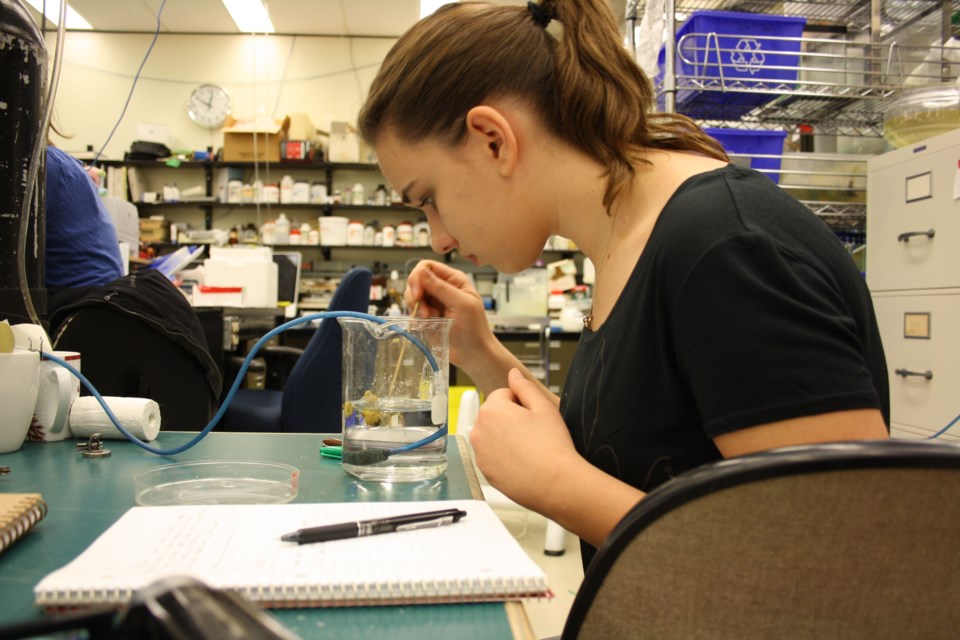Elizabeth Schulz's passion for science is giving her wings.
The Fraser Lake high school student is participating in the Taiwan International Science Fair - a week-long extravaganza that showcases the talents of young scientists from 21 countries.
She qualified as one of two entries from B.C. by participating in the Canada-wide science fair twice and earning a medal on one of those occasions.
"I'm just really looking forward to being able to meet all the different kids from across the world," Schulz said in an interview just prior to leaving.
"It was crazy just to meet kids from across Canada at the Canada-wide science fairs but getting to interact with people from South Africa or the Philippines, that's what I'm really looking forward to.
"And then also just seeing the science from all across the world."
Schulz didn't look far to find her focus of her work - for years she's been studying pond snails found in Fraser Lake.
Originally, she investigated ways to get rid of them responsibly - they're a source of swimmer's itch. But then she recognized a value in them - their simple nervous systems make them good fodder for studying neurological mechanisms.
In particular, Schulz looked at how well snails learn a conditioned behaviour under different colours of light. She found they were able to retain a memory for at least 24 hours under white light but under various other colours, there was no learning at all.
Exactly why is the subject of further investigation.
"I just began to dive into this," Schulz said. "Now, I can go a lot more in depth and find out what happened in the actual receptors and that kind of thing but for right now I can't give any clearcut answer."
Schulz is following in her brother Andrew's footsteps. Now studying at University of Northern British Columbia, he was an entry in the 2014 TISF for an investigation into whether different substances could affect blood-glucose readings.
Both got hooked on science at early ages, said Lilly, their mother, who teaches Grade 2 at Fraser Lake Elementary. Their father, Robert, is a supervisor in the mechanics shop at Fraser Lake Sawmill in the community of 1,178 people 160 kilometres west of Prince George.
Andrew made it all the way to regionals in Grade 4. Elizabeth was in Grade 2 at the time.
"She just thought this was the greatest thing and could hardly wait," Lilly said.
"Science fairs have been really a big part of our family life. When we go on holidays, they've always got their eyes open - they look at things in a different way, they wonder why and how could we find out? It's always been in our family."
What's the appeal of science? Elizabeth, who graduates from high school this year and plans to take general sciences at UNBC, admits achieving success in the science fairs is a motivator, but it's not the main one.
"It just always being able to learn new things and being able to discover things that other people may not know," she said. "And also being able to understand the world better."
She's also travelled extensively - to national-level fairs held in Lethbridge, Windsor, Fredericton and Montreal, as well as joining the rest of her family in Taiwan when Andrew was selected in 2014. And she's made a lot of friends.
"Without science, I wouldn't have been able to meet some of the people I have," she said. "Throughout the years, I've made connections with all kinds of amazing people."



